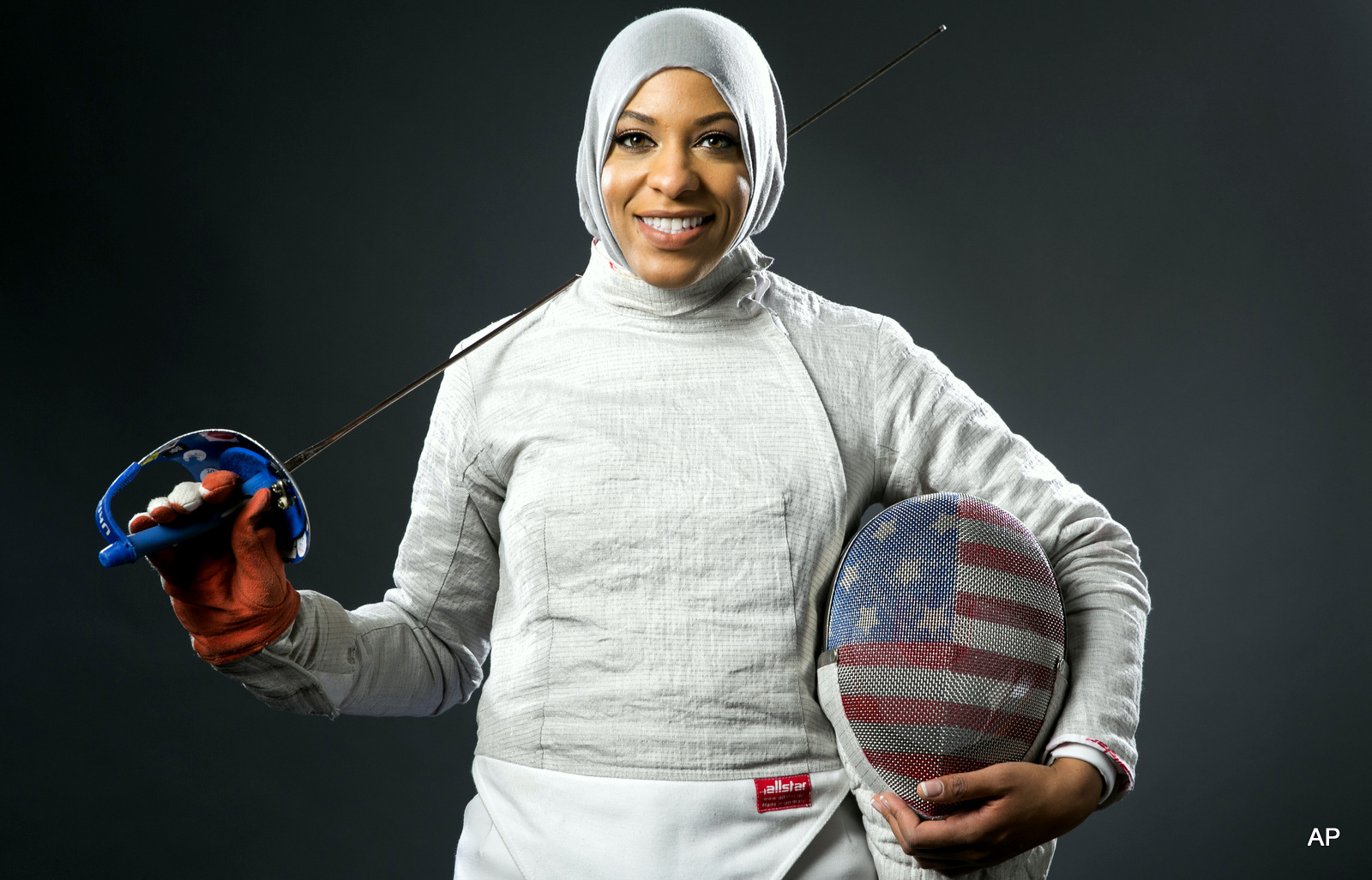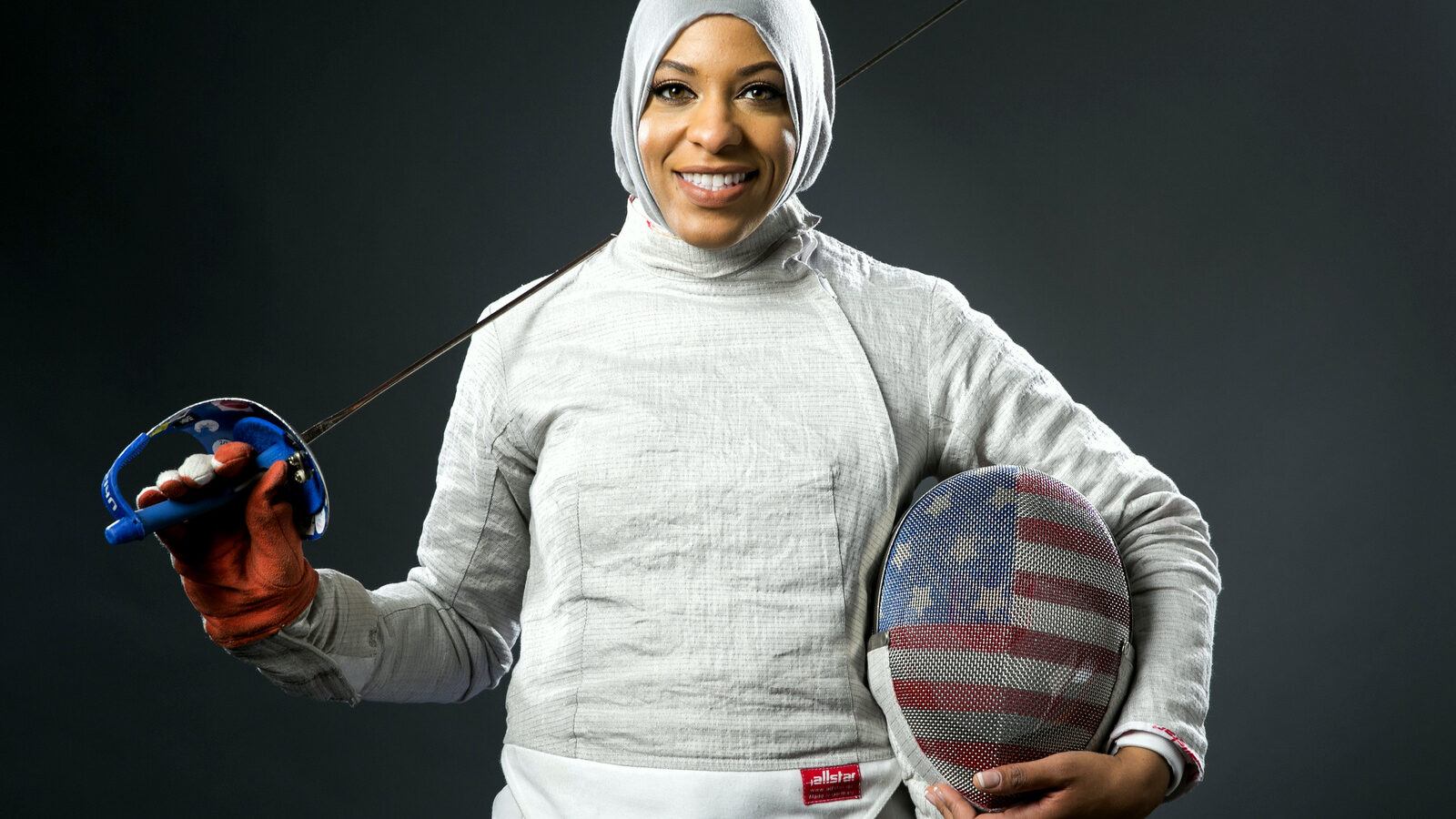
RIO DE JANEIRO — The 2016 Summer Olympics haven’t even started yet, but one American Muslim is already making history.
Ibtihaj Muhammad, a fencer, is the first hijab-wearing woman to qualify for Team USA. She hopes her participation in the Rio Games will help improve the image of Muslim women in the media, and create pushback against a growing wave of Islamophobia that’s gotten a dangerous boost from the presidential bid of GOP nominee Donald Trump.
“It’s a tough political environment that we’re in right now. It’s not easy,” Muhammad said during a press conference in Los Angeles, according to Agence France Presse on Tuesday. “Muslims are under the microscope and I’m hoping to change the image that people may have of Muslim women.”
Looking good on the @TODAYshow @USAFencing! 🇺🇸😎#TeamUSA pic.twitter.com/MqvpyA3egG
— Team USA (@TeamUSA) August 2, 2016
While Muhammad is the first hijabi member of Team USA, she’s not the first hijabi Olympian. The 2012 London Olympics, for example, featured six athletes in hijab: Wojdan Shaherkani, a judoka, and Sarah Attar, a runner, from Saudi Arabia; Noor Hussain Al-Malki, a sprinter from Qatar; Tahmina Kohistani, a sprinter from Afghanistan; Shinoona Salah al-Habsi, a sprinter from Oman; and Fatima Sulaiman Dahman, a runner from Yemen.
This year, though, Muhammad will be competing in an especially politically-charged atmosphere and amid frequent threats against Muslims in America.
AFP reported:
“Republican presidential nominee Donald Trump has been accused of fueling anti-Islamic sentiment, pointedly calling for Muslims to be prevented from entering the United States in December last year.”
In some ways, Trump is the greatest success story of the multi-million dollar Islamophobia industry. Under his candidacy, openly Islamophobic rhetoric has reached new heights, from talk of profiling to outright deportation of legal Muslim residents of the U.S.
Despite these threats, AFP noted, “Muhammad diplomatically declined to speculate on what life for American Muslims might be like if Trump is elected to the White House in November.” Instead, she remarked:
“I hate to talk about ‘what-ifs.’ I’m hoping we can change direction a little bit and see Muslims in more of a positive light and try to combat the negative imagery that we are shown every day. Can I influence the debate? I don’t know. I’m just trying to do well in Rio.”
Muhammad is no stranger to prejudice. In March, officials from the SXSW technology conference in Austin, Texas, apologized after a volunteer asked Muhammad to remove her hijab.
And as reports of hijab-wearing women facing prejudice on flights become more commonplace, Muhammad said that this became a major concern for her not just as a hijab-wearing woman, but as an athlete hoping to qualify for major events:
“When Muslims were being kicked off flights in the middle of Olympic qualifiers that was a real worry – am I going to be allowed to board my flight to make it to my Olympic qualifier?”
At the press conference, she admitted that having so much attention focused on her faith and her expression of it is “something I struggle with every day.” But beyond her own struggles as a highly-visible Muslim woman, Muhammad hopes to make a difference for others:
“You have to not just think about yourself, but everyone. And there are people in America right now who don’t feel safe going to work every day, who don’t feel safe in their community. That’s a problem. I remember being a kid and people telling me I didn’t belong in my sport because of my skin colour, because I was Muslim. So if I can be a source of change for other minorities, I feel fortunate to be able to do that.”


